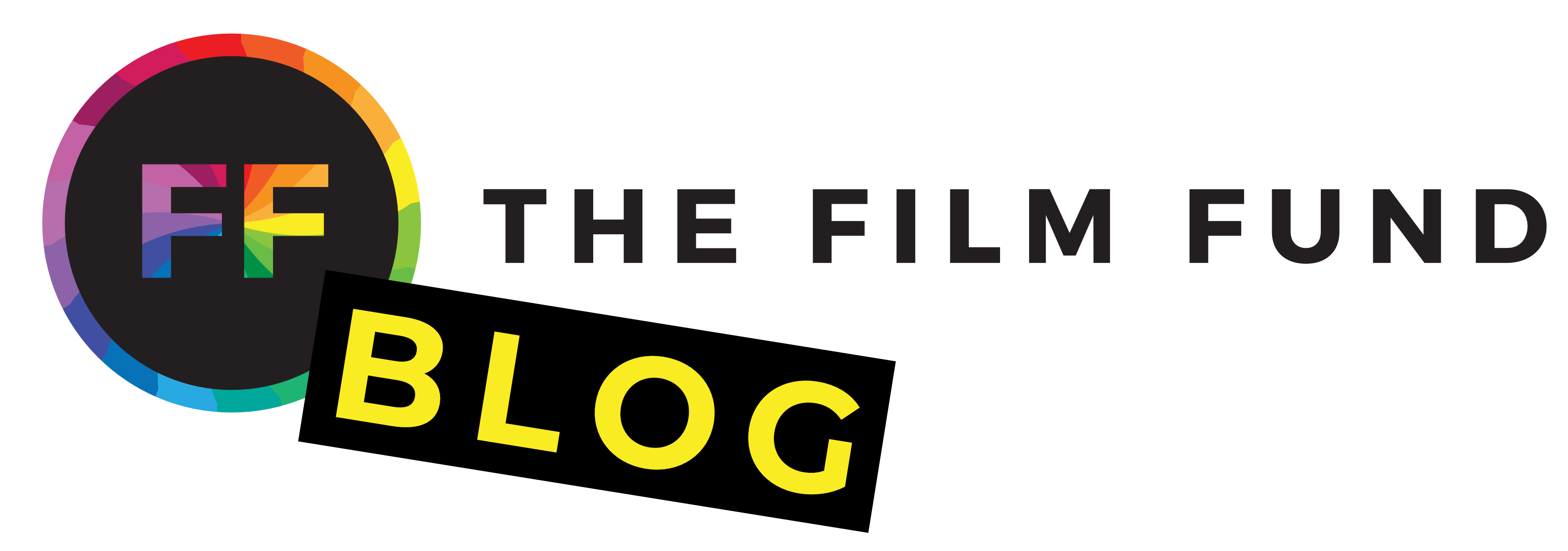Amidst the whirlwind of creativity in the world of filmmaking, it’s easy to overlook the legal questions and legal aspects of filmmaking. However, understanding the legal framework is crucial for safeguarding your work and ensuring that your artistic vision remains intact. Legal questions, ranging from contracts with cast and crew to securing rights and navigating copyright laws, can have a profound impact on the success and longevity of your film. By arming yourself with the necessary legal knowledge, you can protect your intellectual property and mitigate potential risks along the way.
As you embark on your filmmaking journey, it’s essential to be aware of the legal questions that may arise throughout the process. From the initial stages of pre-production to the final moments of distribution and exhibition, legal considerations permeate every aspect of filmmaking. In this guide, we’ll explore these key legal questions in depth, providing insights and practical tips to help you navigate the complexities of the legal landscape with confidence. Whether you’re grappling with contracts, rights, or copyrights, this guide will serve as your roadmap, empowering you to overcome legal hurdles and protect your creative endeavors.
Understanding Contracts

Contracts are the backbone of any successful film production, serving as the legal framework that governs relationships, obligations, and rights among various parties involved. As an indie filmmaker, understanding contracts is paramount to protecting your interests and ensuring a smooth production process.
What are Contracts and Why Do They Matter?
Contracts are legally binding agreements between two or more parties that outline the terms and conditions of their relationship or transaction. In the context of filmmaking, contracts are used to formalize agreements with cast, crew, vendors, distributors, and other stakeholders. These agreements detail crucial aspects such as payment terms, work responsibilities, rights, and liabilities.
Types of Contracts in Filmmaking: Talent, Crew, Location, Distribution
In the multifaceted world of filmmaking, a variety of contracts come into play to facilitate different aspects of production. From talent agreements with actors to crew contracts with cinematographers and production designers, each contract serves a specific purpose in bringing your vision to life. Location agreements, distribution contracts, and licensing agreements are also common in the filmmaking landscape, each requiring careful negotiation and consideration.
Negotiating Contracts: Tips for Indie Filmmakers
Negotiating contracts can be a daunting task, especially for indie filmmakers navigating the complex legal terrain for the first time. However, with the right approach and preparation, you can negotiate favorable terms that protect your interests while fostering positive relationships with your collaborators. Key negotiation tips include conducting thorough research, clearly defining expectations, seeking legal counsel when necessary, and maintaining open communication throughout the process.
Common Pitfalls and How to Avoid Them
Despite your best efforts, pitfalls and challenges may arise during the contract negotiation process. From ambiguous language to unforeseen contingencies, navigating these pitfalls requires vigilance and attention to detail. By anticipating common issues such as scope creep, payment disputes, and intellectual property rights, you can proactively address them in your contracts and minimize potential conflicts down the line.
Contracts play a pivotal role in the filmmaking process, shaping the dynamics of relationships and ensuring clarity and accountability among stakeholders. By understanding the fundamentals of contracts, negotiating effectively, and avoiding common pitfalls, indie filmmakers can navigate the legal landscape with confidence and focus on bringing their creative visions to fruition.
Rights and Clearances

Securing rights and obtaining clearances are vital steps in the filmmaking process, ensuring that your project complies with legal requirements and mitigates the risk of copyright infringement or other legal disputes. Understanding the intricacies of rights and clearances is essential for indie filmmakers seeking to protect their work and maintain integrity throughout the production journey.
Securing Rights: Why It’s Crucial
Rights acquisition forms the foundation of any film project, allowing filmmakers to legally utilize copyrighted material such as music, artwork, and literary works in their productions. Failing to secure the necessary rights can result in costly legal battles, delays, or even the inability to distribute your film. Whether it’s obtaining music licenses for your soundtrack or securing permissions for on-screen artwork, prioritizing rights acquisition is paramount for indie filmmakers.
Obtaining Clearances: Music, Artwork, Locations
Clearances encompass the process of obtaining permission to use copyrighted material, trademarks, or recognizable locations in your film. This involves obtaining releases from individuals whose likeness appears on screen, securing location agreements for filming in public or private spaces, and obtaining licenses for any copyrighted material used in your production. Clearances ensure that you have the legal right to use the content in your film and protect you from potential legal liabilities.
Publicity Rights: Navigating the World of Likenesses
Publicity rights pertain to the use of an individual’s likeness, voice, or persona for commercial purposes without their consent. As an indie filmmaker, it’s essential to obtain releases from actors, extras, and other individuals whose likeness appears in your film to avoid potential legal issues. Additionally, being mindful of the portrayal of real-life figures or public figures in your film can help mitigate the risk of defamation or invasion of privacy claims.
Tips for Avoiding Legal Disputes
Navigating the realm of rights and clearances can be complex, but there are steps you can take to minimize the risk of legal disputes. Conducting thorough research, obtaining written agreements, keeping meticulous records, and seeking legal guidance when necessary can help safeguard your project and protect you from potential legal pitfalls. By prioritizing legal questions related to rights and clearances, indie filmmakers can mitigate risks and focus on bringing their creative visions to life.
Rights and clearances are essential components of the filmmaking process, ensuring that your project complies with legal requirements and maintains integrity throughout production. By understanding the importance of securing rights, obtaining clearances, navigating publicity rights, and implementing strategies to avoid legal disputes, indie filmmakers can protect their work and pursue their creative endeavors with confidence.
Copyright Essentials

Understanding copyright laws is fundamental for indie filmmakers, as they govern the use and distribution of creative works, including films. From protecting your own intellectual property to respecting the rights of others, navigating copyright essentials is essential for safeguarding your artistic endeavors and avoiding legal entanglements.
Understanding Copyright: What You Need to Know
Copyright is a form of legal protection granted to creators of original works, granting them exclusive rights to reproduce, distribute, and display their creations. In the context of filmmaking, copyright applies to various elements such as screenplays, scripts, visuals, music, and sound recordings. Understanding copyright laws empowers indie filmmakers to protect their own creative works and respect the rights of others in the industry.
Protecting Your Work: Copyright Registration and Notices
While copyright protection is automatic upon the creation of an original work, registering your copyright with the relevant authorities provides additional legal benefits and protections. Copyright registration establishes a public record of your ownership and enables you to pursue legal action against infringers. Additionally, including copyright notices in your film credits and promotional materials serves as a deterrent to potential infringers and reinforces your rights as a creator.
Fair Use: What It Means for Indie Filmmakers
Fair use is a legal doctrine that allows for the limited use of copyrighted material without the need for permission from or payment to the copyright holder. This doctrine enables filmmakers to incorporate copyrighted material into their works for purposes such as criticism, commentary, parody, or education. However, the application of fair use is subjective and context-dependent, requiring careful consideration and legal analysis to determine its applicability to your specific use case.
Dealing with Copyright Infringement: Steps to Take
In the unfortunate event of copyright infringement, indie filmmakers must take swift and decisive action to protect their rights and seek redress. This may involve sending cease-and-desist letters, filing takedown notices with online platforms, or pursuing legal action against infringers. By understanding copyright laws and taking proactive measures to enforce their rights, indie filmmakers can defend their creative works and preserve the integrity of their artistic vision.
Copyright is a cornerstone of the filmmaking industry, shaping the way creators protect and share their creative works. By understanding copyright essentials, including registration, fair use, and enforcement mechanisms, indie filmmakers can navigate the legal landscape with confidence and ensure that their artistic endeavors are protected from infringement.
Distribution and Exhibition

The distribution and exhibition phase marks the culmination of indie filmmakers’ hard work, as their films are shared with audiences around the world. However, addressing all of the legal questions of distribution and exhibition requires careful consideration of contracts, royalties, and copyright issues to ensure that filmmakers’ rights are protected and their work is fairly compensated.
Distribution Agreements: What to Look Out For
Distribution agreements are contracts between filmmakers and distributors that outline the terms and conditions of the distribution of their films. These agreements typically cover aspects such as territory, rights, royalties, and marketing strategies. When negotiating distribution agreements, indie filmmakers should carefully review the terms and ensure that they retain as much control and ownership of their work as possible. Understanding the intricacies of distribution agreements is essential for protecting filmmakers’ rights and maximizing the potential success of their films.
Understanding Royalties and Revenue Sharing
Royalties and revenue sharing arrangements dictate how profits from the distribution of a film are divided among various parties, including filmmakers, distributors, and investors. Indie filmmakers should be aware of the different models of royalty and revenue sharing and negotiate favorable terms that ensure fair compensation for their creative contributions. By understanding their rights and advocating for equitable revenue sharing, filmmakers can maximize their earnings and secure a sustainable future for their projects.
Legal Issues in Film Festivals and Screenings
Participating in film festivals and screenings is a valuable opportunity for indie filmmakers to showcase their work to audiences and industry professionals. However, legal considerations such as licensing agreements, copyright clearances, and venue contracts must be addressed to ensure that screenings proceed smoothly and legally. Indie filmmakers should familiarize themselves with the legal requirements and obtain the necessary permissions and licenses to avoid potential legal disputes and protect their films’ integrity.
Online Distribution: Navigating the Digital Landscape
With the rise of digital platforms and streaming services, online distribution has become an increasingly important avenue for indie filmmakers to reach global audiences. However, navigating the digital landscape involves unique legal considerations such as digital rights management, licensing agreements, and revenue sharing models. Indie filmmakers should carefully review the terms of online distribution agreements and ensure that their rights are protected in the digital realm. By understanding the legal nuances of online distribution, filmmakers can effectively leverage digital platforms to expand the reach of their films and connect with audiences worldwide.
Distribution and exhibition are exciting phases of the filmmaking journey, offering indie filmmakers the opportunity to share their creative visions with the world. By addressing legal questions related to distribution agreements, royalties, film festivals, screenings, and online distribution, filmmakers can protect their rights, maximize their earnings, and ensure the success of their projects.
In Conclusion
While legal questions may seem daunting at first, remember that you have the knowledge and resources to navigate them successfully. By arming yourself with the necessary legal knowledge, seeking guidance when needed, and prioritizing legal considerations in your filmmaking journey, you can protect your creative vision and avoid potential pitfalls along the way.
As you continue on your filmmaking journey, remember the importance of staying informed and proactive when it comes to legal matters. Keep abreast of updates in copyright laws, seek legal advice when necessary, and always prioritize the protection of your artistic vision. By doing so, you can safeguard your work and pave the way for a fulfilling and successful career in indie filmmaking.
Lastly, if you’re really set on getting a film finished but need that extra bit of funding to help make your dream a reality, check out our short film funding contest! Unlike other funding avenues, we do not require a completed script. Instead, we require just one sentence that explains the premise of your short film and why you need our help. Check out our entry page to learn more! And if you’re interested in learning more about feature-length film funding, you can check out our new feature film funding opportunity!




